Despite 'strangulating' inflation, Tarin says 'no need to panic'
PM's aide says inflation hurt lower-middle-income group the most
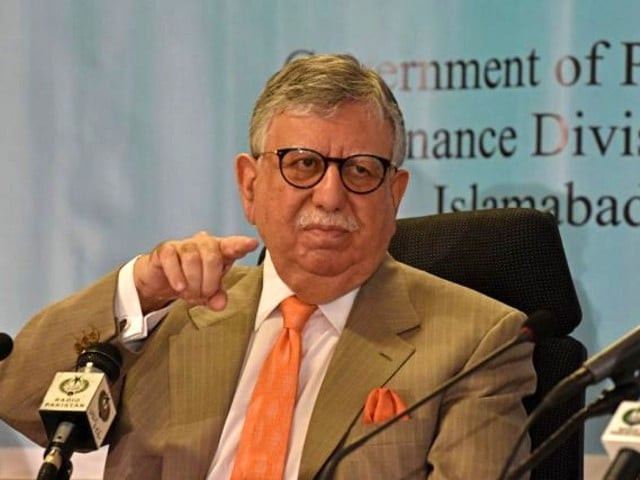
Adviser to the Prime Minister on Finance Shaukat Tarin on Friday admitted that urban lower-middle-income group was strangulated due to a soaring inflation but urged industrialists to increase wages aimed at helping them meet both ends.
Addressing a news conference along with Prime Minster’s Adviser on Commerce Razak Dawood, Tarin said that the industrialists were making money but were not increasing salaries of their employees.
The urban lower-middle class was strangulated, he said, adding the government was trying to provide them relief.
Tarin’s comments seem to be an admission of the existence of a double-digit inflation. His comments came days after the Pakistan Bureau of Statistics (PBS) reported the highest pace of inflation in the country in the last 21 months.
The Pakistan Tehreek-e-Insaf (PTI) has a strong vote base in the cities, which is now directly affected by its policies. Tarin claimed that the rural and the upper urban middle classes were not affected by the prevailing inflation. “The upper middle income class is buying cars at a premium,” he said.
Tarin urged the people to have patience, stressing that the prices would come down, eventually. He added that the government was trying to help the people through interest-free loans and targeted subsidies.
Read More: Public confidence in economy wanes
The PBS reported this week that the CPI-based inflation accelerated to 12% in urban areas – the highest level since January 2020. The inflation rate swelled to 10.9% in villages and towns – the highest read since March 2020, according to the PBS.
Tarin said that the items whose prices increased were all imported goods. However, he stressed that there was no need to panic, saying that the people should only panic if the situation persisted until February or March next year.
“I have restrained myself from increasing the sales tax rate on petrol to 17%, which at the moment is 1.6%,” the prime minister’s aide told reporters. “In case of 17% sales tax on petrol, its price will go up to Rs175 per litre.”
He once again blamed the economic team led by his predecessor, Dr Abdul Hafeez Shaikh, for poorly negotiating the deal with the International Monetary Fund (IMF) in March last year, which, according to him, could further fuel the inflation once all the conditions were implemented.
Under the new IMF deal, the government has committed to impose over Rs525 billion worth of taxes on consumers, increase electricity prices and withdraw untargeted subsidies. All these would lead to another round of inflation, according to the analysts.
Insisting that the country’s economy was moving in the right direction, Tarin stated that exports and remittances would shrink the widening trade gap. He added that there was a 36% increase in tax collection during the first five months of the fiscal year, which suggested that the economy was growing.
However, the break-up of the FBR collection figures showed that nearly 54% revenues collected at the import stage. The sales tax at the import stage grew 80% but it was negative at the domestic stage, according to the FBR figures.
The data released by the PBS on Thursday showed that the trade deficit widened to $20.6 billion in the first five months (July-November) of the current fiscal year due to a significant surge in imports that outpaced the increase in exports.
The deficit was $10.9 billion, or 112%, more than the comparative period of previous year, it added. The widening trade deficit suggests that by June next year, it will be far higher than the target of $28.4 billion set by the government. The five-month deficit was already equal to 72.5% of the annual target.
Tarin said that the $7.84 billion record monthly import bill in November was because of an increase in the commodity prices. He added that rising commodity prices in the international market had increased the import bill by $1.5 billion during the first five months of the fiscal year.
“The 90% increase in import bill was because of high commodity prices and even if we take measures the impact will be only on 10% of the remaining goods, which would not be sufficient,” the finance adviser told the press conference.
However, he continued that the government had decided to ban the import of vehicles for the remaining period of this fiscal year. “At this stage, there is no need to import big cars,” Tarin said. He indicated that the government might impose regulatory duties but did not elaborate.
Speaking on the occasion, the adviser to the prime minister on commerce expressed satisfaction over the increase in the import of raw materials. Razak Dawood also said that the imports of machinery and energy were increasing.


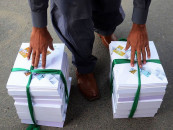
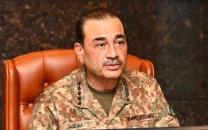
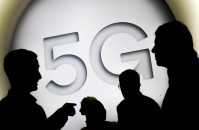
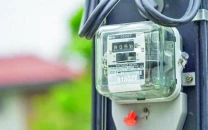













COMMENTS
Comments are moderated and generally will be posted if they are on-topic and not abusive.
For more information, please see our Comments FAQ